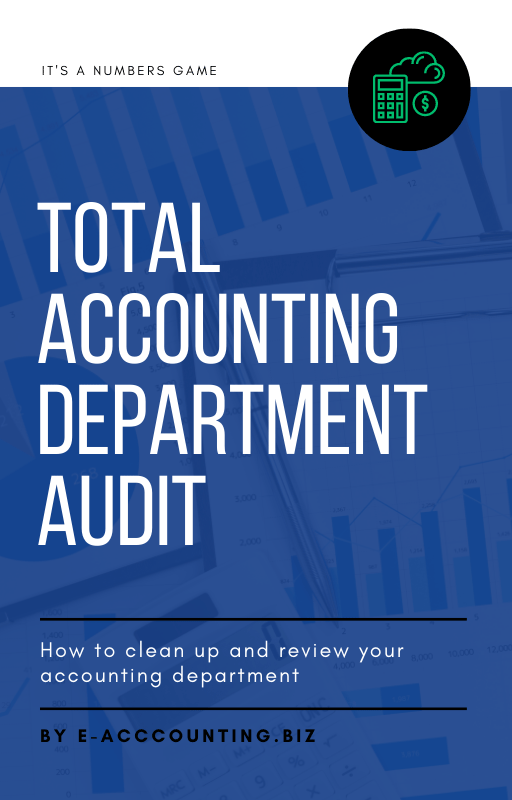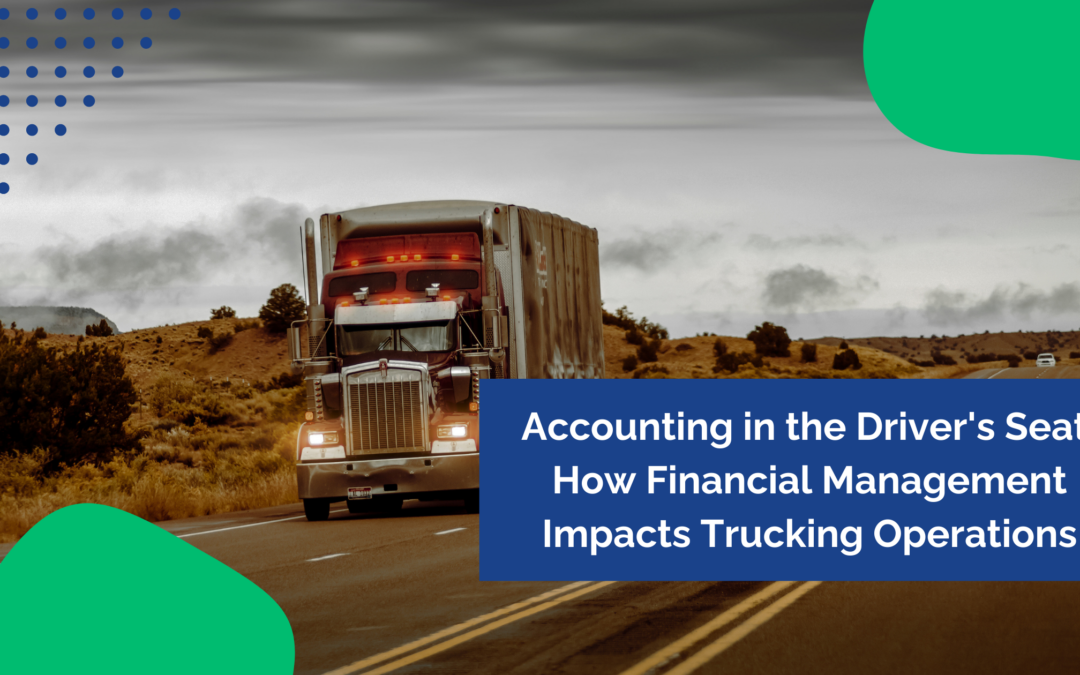In this article, we will delve into the crucial aspect that plays a vital role in maintaining the financial well-being of trucking companies—financial management. Prepare yourself to gain insights into why financial management is a driver of success in the industry and how it can keep trucking companies on the right track.
Imagine a thriving trucking company where operations are in full swing, but the financial engine is running on empty. Studies reveal that nearly 80% of trucking businesses face financial challenges that can lead to significant setbacks or even closure. However, with effective financial management, trucking companies can navigate these obstacles and steer toward profitability and sustainable growth.
The Role of Financial Management in Trucking Operations
Financial management serves as the compass guiding trucking companies through the complex terrain of financial decisions. It encompasses a range of activities aimed at efficiently managing financial resources and ensuring long-term stability.
When it comes to financial management in the trucking industry, it involves juggling multiple gears in motion. It encompasses budgeting, cash flow management, financial reporting, and other essential components. These gears work harmoniously to keep the company on track and avoid financial detours.
Effective financial management holds the keys to smooth operations, improved efficiency, and profitability. It empowers trucking companies to make informed decisions, seize growth opportunities, and weather economic fluctuations. By establishing a solid financial foundation, companies can confidently navigate the road ahead and achieve their goals.
Budgeting for Success: Planning and Forecasting
Budgeting serves as the roadmap for trucking operations, guiding financial decisions along the way. It involves setting financial goals and creating a plan to achieve them. By establishing a budget, trucking companies can effectively allocate resources and monitor their financial performance.
Budgeting plays a crucial role in optimizing financial resources. It enables companies to allocate funds to areas such as fuel, maintenance, equipment, and personnel in a way that maximizes efficiency and profitability. By setting realistic financial goals and aligning resources accordingly, companies can stay on course toward success.
Forecasting, an integral part of budgeting, acts as a crystal ball for financial planning. It involves analyzing historical data, market trends, and industry factors to anticipate future expenses and revenue. Accurate forecasting allows trucking companies to make proactive decisions, adjust their budget as needed, and mitigate potential financial risks.
Cash Flow Management: Ensuring Smooth Operations
Cash flow management acts as the engine that keeps trucking companies running smoothly. It involves monitoring and optimizing the inflow and outflow of cash. For trucking businesses, maintaining sufficient cash flow is essential to cover operational expenses, such as fuel, driver salaries, maintenance, and insurance.
The trucking industry faces specific cash flow challenges, including fluctuating fuel prices, delayed client payments, and unexpected repair costs. These challenges can impact cash flow and, if not managed properly, disrupt day-to-day operations. Recognizing these challenges and implementing effective cash flow management strategies is crucial for long-term success.
To effectively manage cash flow, trucking companies can implement strategies such as diligent tracking of income and expenses, negotiating favorable payment terms with clients, establishing cash reserves for emergencies, and optimizing fuel efficiency. By adopting these best practices, trucking companies can ensure a healthy cash flow and keep their operations running smoothly.
Financial Reporting: Guiding Informed Decisions
Accurate financial reporting serves as the compass guiding informed decision-making in the trucking industry. It involves generating and analyzing financial reports, such as income statements, balance sheets, and cash flow statements.
These reports provide a comprehensive view of a trucking company’s financial health, including revenue, expenses, assets, liabilities, and cash flow. By reviewing and understanding these reports, decision-makers can gain insights into cost control measures, identify areas for improvement, and make data-driven choices regarding pricing strategies and investments.
Financial reports enable trucking companies to evaluate profitability, assess the efficiency of their operations, and compare their performance against industry benchmarks. Armed with this valuable information, companies can make informed decisions to optimize their financial performance, increase profitability, and stay ahead of the competition.
Compliance and Taxation: Navigating Regulations
The trucking industry operates within a complex web of compliance requirements and regulations. From safety regulations to licensing and permits, trucking companies must navigate numerous rules specific to their operations. These regulations aim to ensure safety, protect the environment, and maintain fair business practices.
Effective financial management plays a crucial role in meeting regulatory obligations. By maintaining accurate financial records, tracking expenses, and ensuring timely payments, trucking companies can demonstrate compliance with regulations. This not only helps them avoid costly penalties but also builds a reputation as a responsible and trustworthy business.
Proper tax planning and reporting are essential for the financial health of a trucking company. Taxation in the trucking industry can be complex due to factors such as fuel taxes, vehicle depreciation, and employee taxation. Staying abreast of tax regulations, leveraging applicable deductions, and filing accurate tax returns allow trucking companies to optimize their tax position and minimize financial burdens.
Leveraging Technology: Empowering Financial Management
Technology has revolutionized financial management in the trucking industry, empowering companies to streamline processes and make informed decisions. From cloud-based accounting software to mobile apps, technology offers a range of tools to enhance financial management practices.
Specialized software solutions and tools designed for accounting and financial management in the trucking sector automate tasks such as invoicing, expense tracking, and payroll management. These tools save time, reduce errors, and provide real-time access to financial data, enabling better decision-making and financial planning.
For example, electronic logging devices (ELDs) not only help with compliance by accurately recording driver hours but also provide valuable data for financial analysis. Fleet management software can track vehicle maintenance and fuel consumption, allowing companies to optimize costs. By leveraging technology, trucking companies can improve efficiency, and accuracy, and gain valuable insights into their financial performance.
Conclusion
In conclusion, financial management plays a pivotal role in the success of trucking companies. By implementing effective practices such as budgeting, cash flow management, accurate financial reporting, compliance with regulations, and leveraging technology, companies can navigate the challenges of the industry and drive toward profitability and long-term success.
Prioritizing financial management is essential for trucking companies to achieve their goals, avoid financial difficulties, and seize growth opportunities. By establishing a solid financial foundation and staying on the right track, companies can confidently navigate the road ahead.
We encourage you to explore additional resources such as books, online courses, industry publications, or consulting with qualified experts to deepen your understanding of financial management in the trucking industry. Remember, when it comes to financial management, staying informed and proactive is key to a successful journey.
YOU'VE PROBABLY GOT QUESTIONS....
Not sure where to start?
Our Total Accounting Department Audit can help you find gaps and improvements for your accounting department including areas like:
- Business Cost of Revenue
- Accounts Receivable
- Accounts Payable
- Payroll
- Financial Reporting & Analysis
- Taxes & Compliance
- Budgeting
Work through the essentials with this helpful guide to give you the right checks & balances to get your accounting department cleaned-up and flowing well.


